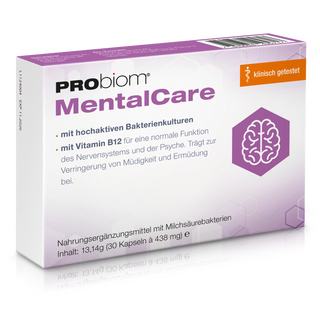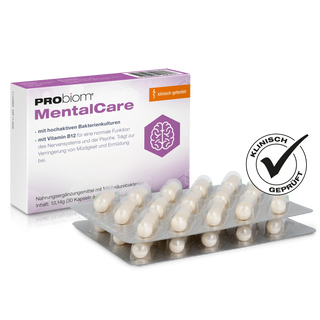Fungal infections are widespread – and often underestimated. Candida albicans , a yeast fungus in particular, can proliferate rapidly in the intestines or on the skin and cause a variety of non-specific symptoms. Many sufferers suffer from symptoms without knowing that a fungal infection is the underlying cause.
Below you will learn which 10 typical signs can indicate a fungal infection – especially in the digestive tract, but also on the skin and mucous membranes.
1. Chronic fatigue and lack of energy
A persistent feeling of exhaustion—despite adequate sleep—may be related to a disrupted microbiome caused by Candida. The fungi produce metabolic toxins such as acetaldehyde, which strain the liver and nervous system, thus lowering energy levels.
2. Bloating, feeling of fullness and abdominal pain
A very common symptom of fungal infections in the intestines. Fermentation by yeast fungi causes increased gas production, which manifests as a bloated stomach, a feeling of pressure, and occasionally nausea – especially after sugary meals.
3. Strong cravings for sugar and carbohydrates
Candida prefers to feed on sugar. A noticeable craving for sweets—especially white flour, baked goods, or candy—can be an indication of fungal overgrowth. Many sufferers report that they "can't help" eating sugar regularly.
4. Recurrent vaginal yeast infections
Women with recurring vaginal infections (itching, discharge, burning) should consider systemic fungal infection – especially if intestinal problems are also present. Local treatment is often only successful in the short term, as the cause lies in the intestine.
5. Skin problems and fungal infections of the skin
Fungi can also spread to the skin—typically in skin folds, on the feet, or in the form of eczema. But impure skin, pimples, or itchy patches with no clear cause can also indicate internal fungal infection.
6. White coating on the tongue (oral thrush)
A classic sign is a whitish, peelable coating on the tongue – often accompanied by unpleasant bad breath, altered taste, and a burning sensation in the mouth. Oral thrush often occurs after antibiotic treatment or when the immune system is weakened.
7. Concentration problems and brain fog
Many sufferers report a foggy head, difficulty concentrating, or memory problems. These symptoms are often related to the fermentation processes in the intestines and the resulting toxins that impair the nervous system.
8. Fungal infections of the feet or nails
Athlete's foot and nail fungus are common, but can also be a sign of an internal imbalance—especially if they persist and recur. A healthy body can usually prevent fungi from permanently colonizing the skin or nails.
9. Mood swings, irritability, depressive moods
An imbalance in the gut can have a direct impact on the psyche – via the so-called gut-brain axis. Candida overgrowth releases inflammatory substances that can disrupt mental balance. Many people feel irritable, restless, or sad – for no apparent reason.
10. Recurrent infections or immune deficiency
Fungi like Candida place a long-term strain on the immune system. Anyone who suffers from persistent colds, respiratory or urinary tract infections, or poor response to vaccinations should have their intestinal flora examined. Microbial overgrowth is often present.
How does a fungal infection occur?
Causes of excessive proliferation of Candida and other yeasts can be:
-
Antibiotic therapies without subsequent rebuilding of the intestinal flora
-
One-sided diet with high sugar and white flour content
-
Chronic stress
-
Hormonal changes (e.g. due to the pill, pregnancy)
-
Weakened immune system (e.g. in chronic diseases)
What to do if Candida is suspected?
If you experience several of the above symptoms, a stool test or Candida test may be helpful. Treatment is usually a combination of:
-
Antifungal diet (avoiding sugar, white flour, alcohol)
-
Antifungal agents (herbal or medicinal)
-
Building up the intestinal flora with specific probiotics against Candida
It is important not only to treat locally, but to address the cause systemically – especially in the intestine.
Conclusion: Recognize Candida – Take symptoms seriously
Fungal infections often go undetected for a long time because the symptoms are nonspecific. However, those who pay attention to their body's signals can take timely countermeasures. Fatigue, digestive problems, cravings, or skin changes should not be ignored – especially if several symptoms occur simultaneously.













